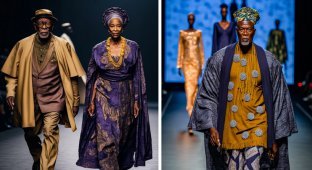A new family format in China: two apartments and children with different surnames (8 photos)
In China, the marriage format that sounds like liang-tou-dun, which literally means "two places to live," is becoming more common. That is, the husband and wife do not live together, because... well, it's inconvenient. 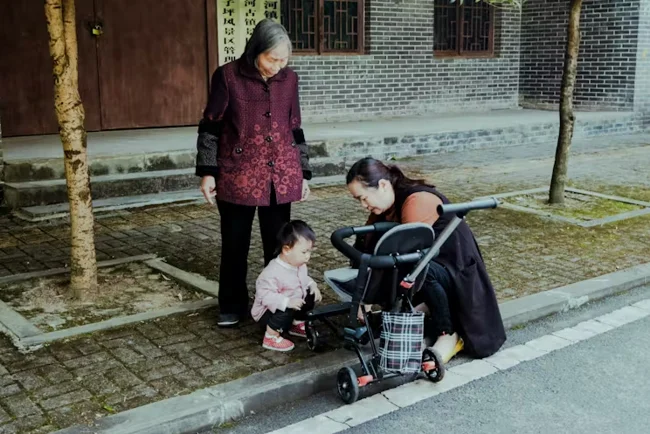
Three generations: grandmother, daughter, granddaughter. And the husband? No need for a husband
It works like this: the bride and groom, each of whom is the only child in their family, receive a wedding apartment from each pair of parents. Which, obviously, is only for the rich class or wealthy parents. Thus, the young couple has two wedding apartments in which they can begin to live. But – increasingly they choose to live in their own, separate from their spouse. 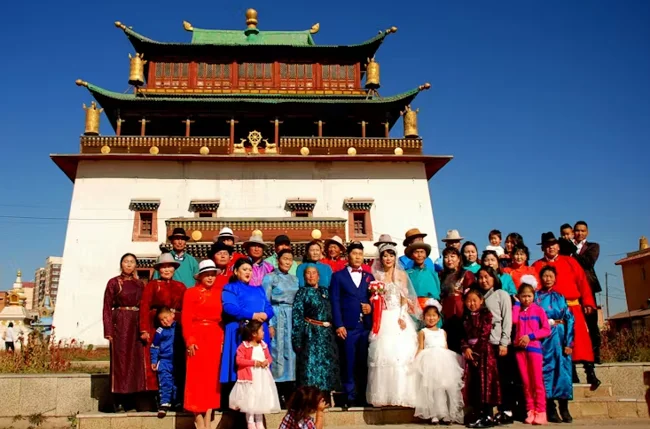
A large Chinese Buddhist family, but the dress is white!
If a couple with “two places to live” has two children, most likely one of them will bear the father’s surname, and the other – the mother’s. This ensures the continuation of the family lines of both families, but can also reinforce inequality between brothers and sisters. As in any patriarchal society, in China it is not customary to give a child the mother’s surname. It is normal for children to take the father’s surname, although Chinese women keep their family name after marriage (and in our country, women change their surnames too). Previously, taking the father's surname was extremely important for inheritance, property was passed down the male line. 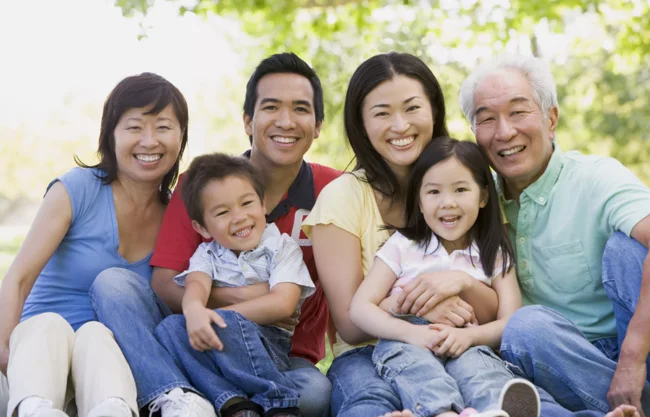
Well, you get the idea, the daughter was given to the mother, the son to the father...
And how did women then preserve the accumulated inheritance? Especially after the one family - one child policy, when there was only one daughter in the family. Then they resorted to the practice of zhao-xu. This is a term for a marriage in which a man marries and lives with his wife's family or in close proximity to her. That is, "primak", or something like that. And if you are a Zhao Xiu, then most likely your children will take the surname of your wife's parents to continue their line. They pay for the entire banquet, which is very pragmatic. 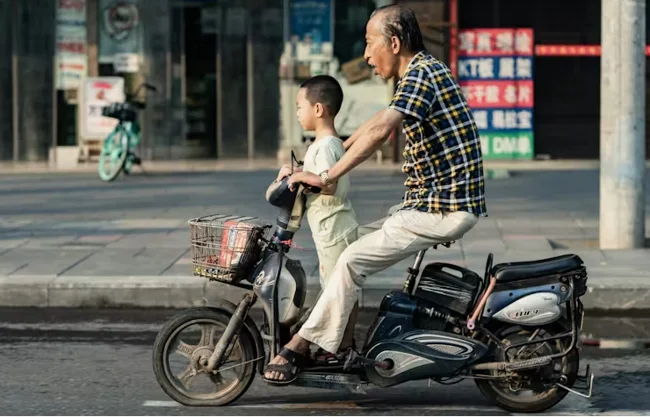
A grandfather will give his favorite grandson an electric bike, and his unloved one a lollipop. And there is no difference between them
And this traditional form of marriage is easily adapted to the needs of modern families consisting of only a daughter. Sons-in-law in such families usually come from families with more than one son, so the husband's family line is not interrupted under the threat of interruption. In these circumstances, the wife's family provides the wedding apartment, furniture, household utensils, dowry and wedding banquet. Traditionally in China, a son is obliged to support and care for his aging parents. A family consisting of only a daughter requires that she already support the elderly.
We are separate, but somehow together 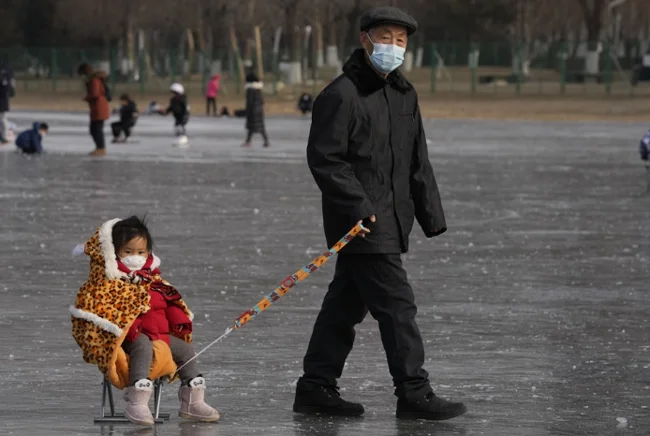
More and more grandfathers require their daughters to register their children under their surname
An alternative to zhao-xu has become the "two-place" format, where the bride's parents provide her with a wedding apartment, and the groom's parents provide him with a wedding apartment. This usually happens to young couples, each of whom is an only child in their family. With two apartments, the young couple does not marry into either family, but instead maintains close relationships with both. They move between two apartments, occupying one for a certain period of time (from a month to six months), and then the other. 
Apartments in China are expensive (and where aren't they), and now they have to buy TWO APARTMENTS for a wedding?!
Since each pair of parents provides for a young family, grandparents play an important role in choosing the surname of their grandchildren. If a couple has two children, the ideal solution for continuing both family lines is for one child to take the father's surname and the other - the mother's. Firstborns, especially sons, have always had a special role in continuing the family line, so the firstborn takes the father's surname. But if the young wife's family has a higher social or financial status than her husband's family, then the first child will take the mother's surname. What a blatant capitalism, without any traditions, isn't it?
Okay, what's the problem? 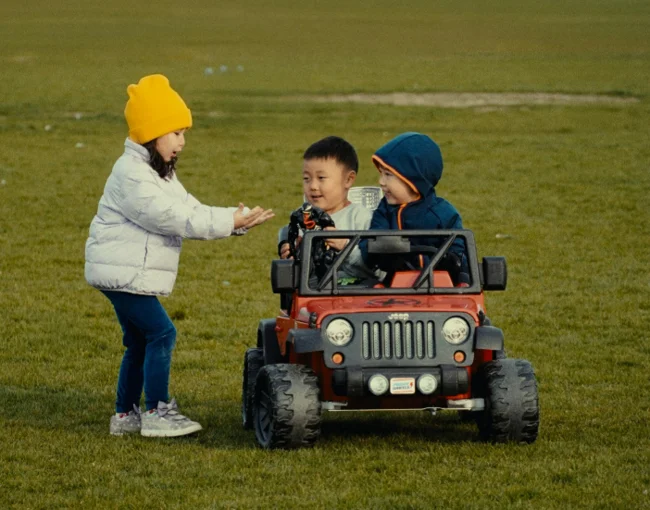
Go away, sister, you're not our family! (sounds crazy, like Santa Barbara)
The fact that a family usually starts with inequality and there is no jointly acquired property that makes the spouses equal. And especially unequal are two children. Because grandparents love and spend money only on their own. That is, one is paid for to study well, and the other parents cannot afford such sums. And this is among brothers and sisters! 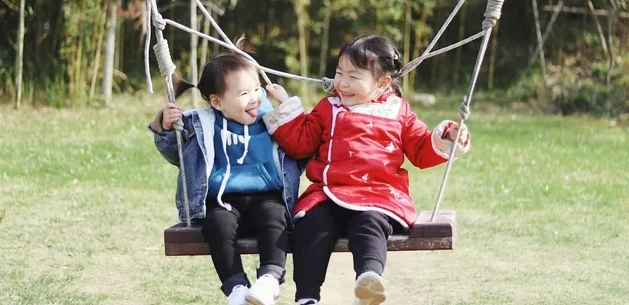
The difference between children can be as simple as the difference in the quality of their clothes!
This form of marriage will only result in a huge number of dramas in the future, but the form itself is quite funny and unusual in that children from the same father and mother are divided at birth. Do you think we will come to something like this?












